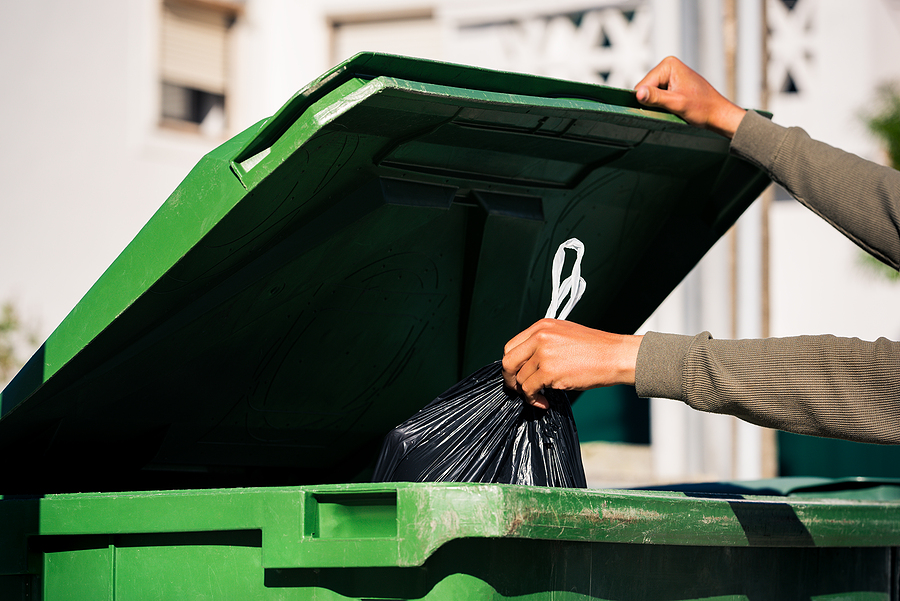Raccoons, while often seen as cute and curious creatures, can quickly become a nuisance when they invade residential properties. They are known for causing property damage, spreading diseases, and creating general chaos. This guide explores various safe and effective methods to deter raccoons, protect your property, and maintain a harmonious relationship with wildlife.
Understanding how to manage these intelligent animals is key to preventing them from becoming unwelcome guests. Fortunately, there are many humane raccoon control options that keep both your home and the local wildlife safe. From simple homemade animal repellents to more advanced technological solutions, this blog will walk you through the best strategies to get rid of raccoons for good.

Understanding Raccoon Behavior
To effectively deter nuisance raccoons, it’s important to understand what attracts them to your property in the first place. Raccoons are intelligent, adaptable, and opportunistic omnivores. Their primary motivations are food, water, and shelter.
Residential areas often provide an ideal habitat for them. Common attractants include:
- Accessible Food Sources: Unsecured trash cans, pet food left outdoors, bird feeders, and vegetable gardens are all easy meals for a raccoon.
- Water: Birdbaths, ponds, and even pet water bowls can draw raccoons to your yard.
- Shelter: Decks, sheds, attics, and chimneys offer warm, safe places for raccoons to build dens and raise their young.
By recognizing these attractants, you can take the first steps in making your property less inviting.
Scent-Based Raccoon Deterrents
One of the most effective and humane ways to deter raccoons is to appeal to their strong sense of smell. Certain scents are unpleasant to them and can encourage them to find another place to forage.
- Peppermint Oil: The strong, minty aroma of peppermint essential oil is a powerful raccoon repellent. Mix a few drops with water in a spray bottle and apply it to areas where you’ve seen raccoon activity, like around trash cans or garden borders.
- Garlic: The pungent smell of garlic can also keep raccoons at bay. A simple garlic spray made from minced garlic and water is an excellent option.
- Eucalyptus Oil: Similar to peppermint, eucalyptus oil has a potent scent that raccoons dislike. Use it in the same way, spraying it around potential entry points.
- Commercial Repellents: Products like Critter Ridder are formulated with a blend of natural ingredients, including capsaicin from chili peppers, that irritate a raccoon’s senses without causing harm.
Remember that scent-based deterrents need to be reapplied regularly, especially after rain, to remain effective.
Physical Barriers for Raccoon Control
Sometimes, the best defense is a good offense. Creating physical barriers can be one of the most reliable ways to prevent raccoons from accessing your property.
- Secure Trash Cans: Ensure your trash cans have tight-fitting, lockable lids. Bungee cords can also be used to secure lids that raccoons might otherwise be able to pry open.
- Fencing: A sturdy fence can be an effective barrier. Raccoons are skilled climbers, so consider adding a wire mesh extension at a 45-degree angle at the top of the fence to prevent them from climbing over.
- Netting and Mesh: Protect your garden with netting draped over your plants. Use hardware cloth or wire mesh to seal off any openings under decks, porches, or sheds where raccoons might try to build a den.
- Chimney Caps: Installing a chimney cap is essential to prevent raccoons from nesting in your chimney, which can be a serious fire hazard.
Motion-Activated Devices
Raccoons are nocturnal and easily startled by sudden light or noise. Motion-activated devices use this to your advantage, scaring them away without causing any physical harm.
- Motion-Activated Sprinklers: Devices like the Orbit Yard Enforcer detect movement and spray a sudden burst of water. This is highly effective at startling raccoons and teaching them to avoid your yard.
- Motion-Activated Lights: Installing bright, motion-activated floodlights can also be a powerful deterrent. The sudden illumination is often enough to send a curious raccoon running.
- Solar-Powered Predator Lights: Products like Nite Guard Solar mimic the eyes of a predator. These small, solar-powered devices emit flashing red lights that raccoons perceive as a threat, encouraging them to stay away.
Contact Us for Safe Raccoon Control ☎
Habitat Modification: Making Your Yard Less Appealing
Beyond specific deterrents, making strategic changes to your property can significantly reduce its appeal to raccoons.
- Remove Food Sources: This is the most critical step. Bring pet food and water bowls inside at night, secure compost bins, and clean up fallen fruit from trees. If you have bird feeders, use raccoon-proof models or bring them in after dark.
- Eliminate Shelter: Trim overgrown bushes and trees that could provide cover. Seal any potential entry points to your attic, crawl space, or shed. Keep your yard tidy and free of debris that could serve as a hiding spot.
- Plant Raccoon-Repellent Plants: Some plants have strong smells that naturally deter raccoons. Consider planting peppermint, lavender, marigolds, or cucumbers around your garden as a natural barrier.
DIY Raccoon Deterrent Recipes
For a cost-effective approach, you can create your own homemade animal repellents using common household ingredients.
- Spicy Cayenne Pepper Mix: Sprinkle cayenne pepper or chili powder around your plants and garden beds. The spicy scent and taste are highly irritating to raccoons.
- Epsom Salt Barrier: Raccoons dislike the taste of Epsom salt. Sprinkle it around your garden to create a protective barrier.
- Ammonia-Soaked Rags: The smell of ammonia mimics the urine of a predator. Soak rags in ammonia and place them in areas where raccoons frequent, like near trash cans. Caution: Ammonia can be harmful to other animals and plants, so use this method with care.
- Vinegar Solution: Soak cloths in apple cider vinegar and place them near common raccoon paths. The strong odor is an effective repellent.
When to Call a Professional Raccoon Removal Service
While DIY and humane deterrents are often effective, there are situations where a professional raccoon removal service is necessary. Consider calling an expert if:
- You have a severe or persistent raccoon infestation.
- A raccoon has become trapped in your home, such as in the attic or chimney.
- You suspect a raccoon on your property is sick or injured. Raccoons can carry diseases like rabies, so it’s crucial not to approach them.
- You have tried multiple deterrents without success.
A professional raccoon removal service has the expertise and equipment to safely and humanely remove the animals and help you implement long-term prevention strategies.
Frequently Asked Questions
Are these deterrents safe for pets and children?
Most of the deterrents mentioned, such as peppermint oil, garlic spray, and motion-activated sprinklers, are safe for pets and children. However, always exercise caution with products like cayenne pepper and ammonia, ensuring they are placed out of reach.
How often do I need to reapply scent-based deterrents?
Scent-based repellents should be reapplied every few days, and always after it rains, to maintain their effectiveness.
Will these methods work for a severe raccoon infestation?
For a severe infestation, a combination of methods is usually most effective. However, if the problem persists, it’s best to contact a professional raccoon removal service.
What are the signs of a raccoon infestation?
Common signs include tipped-over trash cans, raided gardens, tracks in your yard, droppings (latrines), and noises like scratching or chittering coming from your attic or walls.
In Summary
Dealing with a raccoon infestation can feel overwhelming, but understanding the signs and implementing effective removal methods can help you regain control of your home and yard. By staying vigilant and taking proactive steps, such as securing food sources, sealing entry points, and using humane deterrents, you can reduce the likelihood of a recurring problem.
However, for severe infestations or if you’re unsure how to proceed, reaching out to a professional raccoon removal service is always the safest and most effective choice. Protecting your home and family while respecting local wildlife ensures a balanced approach to resolving these challenges.
If you’re struggling with a raccoon problem and need assistance, don’t hesitate to reach out. Raccoon Removal Louisville is here to provide safe, effective, and humane raccoon control solutions tailored to your needs.
Related Post: Why Are Raccoons Attracted to My Property?











